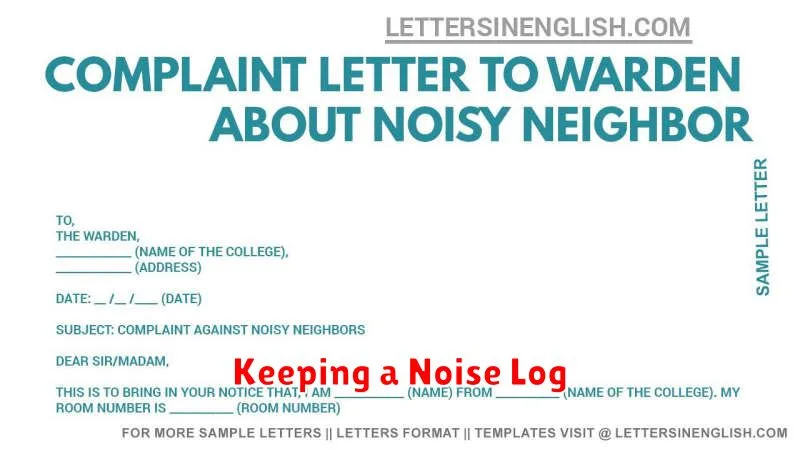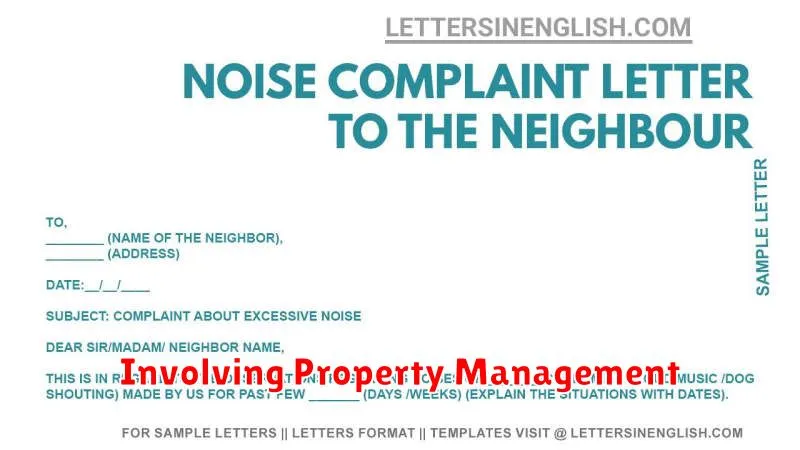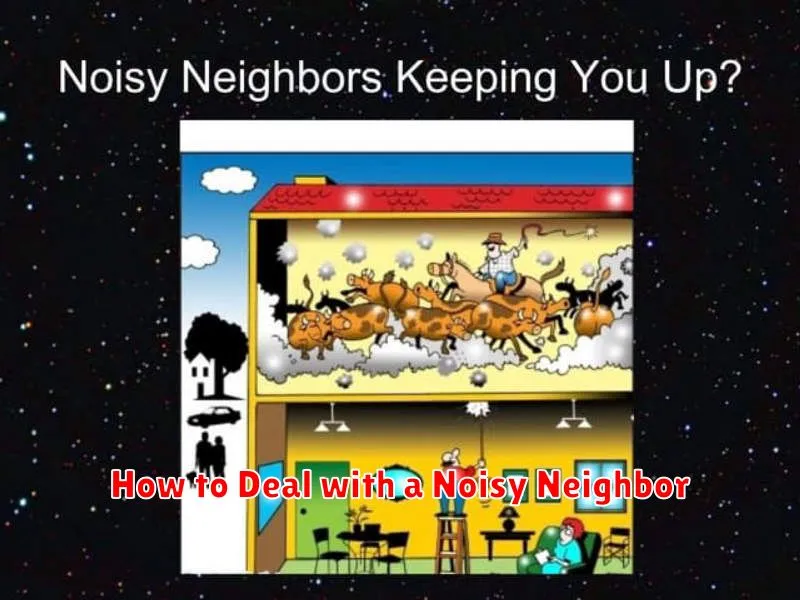Dealing with a noisy neighbor can be a frustrating and stressful experience. Whether it’s constant loud music, late-night parties, or incessant barking dogs, excessive noise can disrupt your peace and quiet, impacting your sleep, productivity, and overall well-being. If you’re struggling with a noisy neighbor, it’s important to address the issue effectively and find a resolution that respects both your rights and your neighbor’s. This article will provide practical advice and strategies for handling neighbor noise complaints and resolving conflicts peacefully.
From understanding your local noise ordinances to implementing effective communication techniques, we will explore various approaches for dealing with a noisy neighbor. We will cover topics such as documenting the noise disturbances, initiating friendly conversations, exploring mediation options, and understanding when it’s appropriate to involve your landlord or the authorities. Learn how to effectively address the issue of a noisy neighbor and restore tranquility to your home environment. This guide provides a step-by-step approach, offering practical tips and strategies for resolving neighbor noise disputes effectively and peacefully.
Recognizing Noise Violations
Noise violations typically involve sounds that are unreasonably loud, disruptive, or persistent. Understanding your local ordinances is crucial, as specific decibel levels and time restrictions vary. However, some common examples provide a general framework.
Common Noise Violations
- Loud Music/Parties: Excessively loud music, especially late at night, often constitutes a violation.
- Construction Noise: While some construction noise is unavoidable, exceeding permitted hours or decibel levels is a violation.
- Barking Dogs: Continuous or excessive barking can be considered a noise violation.
- Loud Vehicles/Motorcycles: Modified exhaust systems or excessive revving can violate noise ordinances.
- Power Equipment: Using leaf blowers, lawnmowers, or other power equipment outside of designated hours is often restricted.
Documenting instances of noise violations is important. Keep a record of dates, times, and the nature of the disturbance. This documentation can be invaluable when addressing the issue with your neighbor or local authorities.
Communicating Calmly with Neighbors
When addressing noise issues, a calm and respectful approach is crucial. Avoid confrontational language or accusations. Instead, focus on describing the issue and its impact on you.
For instance, instead of saying “Your music is too loud!”, try “I’ve been having trouble concentrating lately because I can hear music coming through the walls. Would it be possible to lower the volume a bit, especially during certain hours?”
Choosing the right time and place for the conversation is also important. Avoid approaching your neighbor when they are clearly busy or stressed. A neutral time and a calm, private setting are generally best.
Active listening is key. Allow your neighbor to share their perspective and try to understand their situation. This can help de-escalate tension and foster a cooperative environment for finding solutions.
Keeping a Noise Log

A detailed noise log is a crucial tool in addressing noise complaints. It provides documented evidence of the disturbance, helping to establish a pattern of behavior. This log can be invaluable when discussing the issue with your neighbor or involving landlords or authorities.
When creating your log, be as specific as possible. Record the date, time the noise began and ended, the type of noise (e.g., loud music, shouting, construction), and its intensity. Note any negative impacts the noise has on you, such as disrupted sleep or difficulty concentrating.
Consistency is key. Even seemingly minor incidents should be logged. A comprehensive record demonstrates the ongoing nature of the problem.
Example Log Entry
| Date | Time Started | Time Ended | Type of Noise | Intensity | Impact |
|---|---|---|---|---|---|
| 2024-07-24 | 11:00 PM | 1:00 AM | Loud Music | Very Loud, Vibrations Felt | Prevented Sleep |
Involving Property Management

If direct communication proves unsuccessful, the next step is to involve your property management. Document all previous attempts to resolve the issue yourself. This includes dates, times, and the nature of the noise disturbance. Providing a clear and concise account of the problem strengthens your case.
Clearly explain the violation. Refer to specific clauses within your lease agreement regarding noise levels or quiet hours if applicable. This demonstrates you understand your rights as a tenant and that the neighbor’s actions are breaching the agreed-upon terms.
Be patient. Property management may have established procedures they need to follow, which can take time. Continue to document any further noise issues while they investigate. Follow up periodically to check on the status of your complaint. Remember to maintain a respectful demeanor throughout the process.
Legal Options for Tenants
If communication and mediation fail to resolve a noise issue with a neighbor, tenants may need to explore legal options. It is crucial to document every instance of excessive noise, including dates, times, and the nature of the disturbance. This documentation will be valuable if legal action becomes necessary.
Depending on the severity and frequency of the noise, tenants can consider several legal avenues. Check your lease agreement for specific clauses related to noise disturbances. Most leases contain provisions outlining acceptable noise levels and quiet hours.
Contacting your landlord is often the first legal step. Provide your landlord with the documented evidence of the noise issue. Landlords have a legal obligation to provide a habitable environment for their tenants, which includes addressing excessive noise complaints. If the noisy tenant is also renting from the same landlord, the landlord may be able to take action against them, such as issuing a warning or even initiating eviction proceedings in serious cases.
If your landlord fails to address the issue, tenants might consider consulting with an attorney to discuss options such as legal action against the landlord for breach of the lease agreement or, in some cases, directly against the noisy neighbor.
Preventing Escalations
Preventing neighbor disputes from escalating requires proactive communication and respectful interactions. Open communication is key. Before resorting to formal complaints, consider a calm, polite conversation with your neighbor about the noise issue. Explain how the noise affects you, focusing on specific examples and avoiding generalizations or accusatory language.
Documenting instances of excessive noise can be beneficial. Note dates, times, and the type of noise. This documentation can be useful if mediation or further action becomes necessary. However, avoid any actions that could be perceived as confrontational or harassing, such as excessive recording or surveillance.
Familiarize yourself with local ordinances regarding noise levels and quiet hours. This information can help you determine if the noise is actually a violation and guide your next steps. If direct communication is unsuccessful and the noise continues, consider contacting your landlord or homeowner’s association if applicable.

